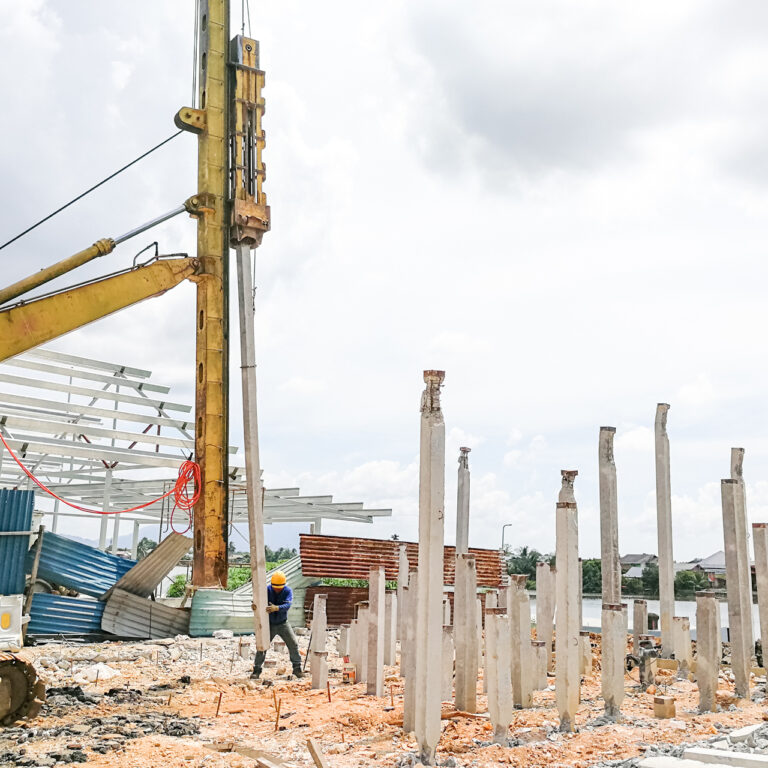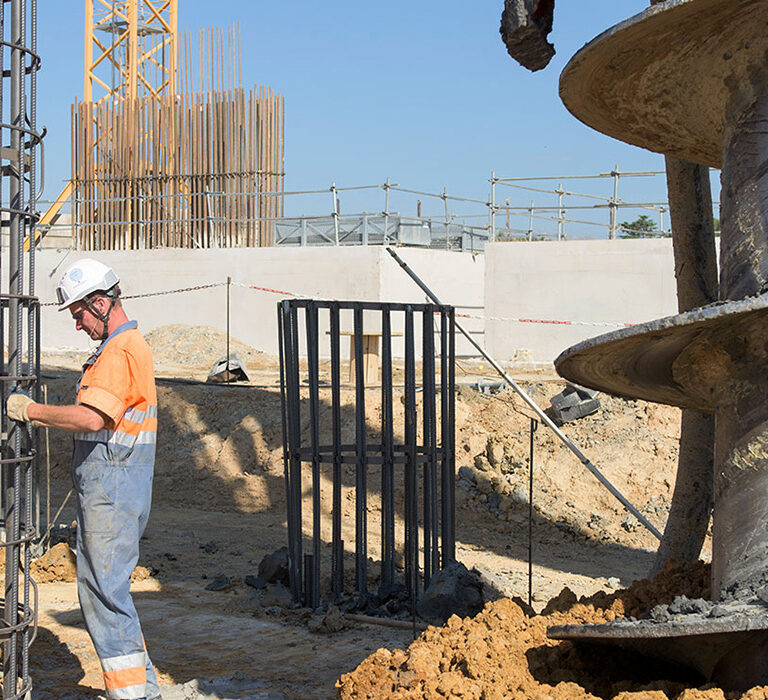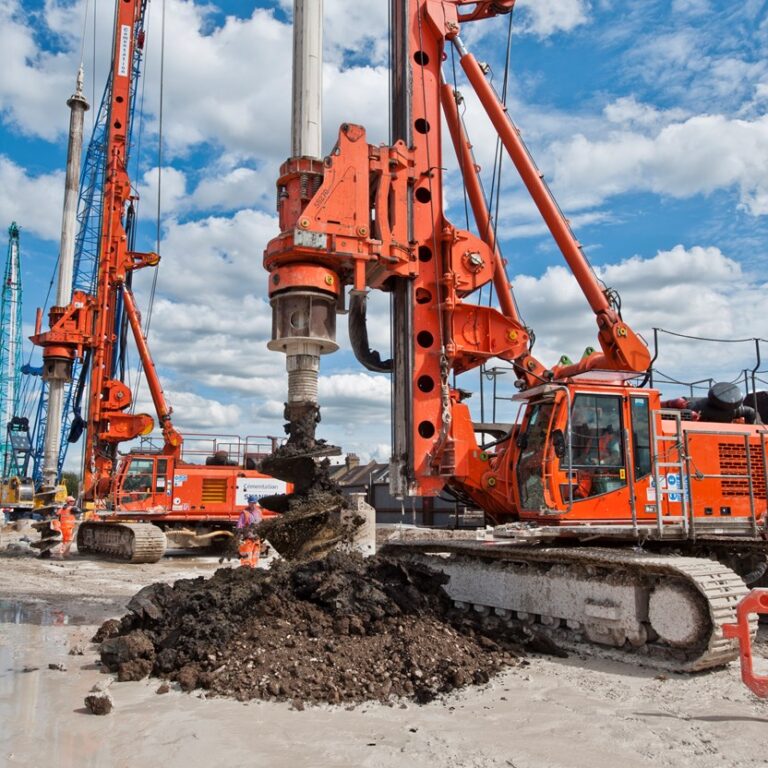Bored Piles
Bored piles, also known as replacement piles, are a commonly-used form of building foundation that provide support for structures, transferring their load to layers of soil or rock that have sufficient bearing capacity and suitable settlement characteristics. Bored piles are piles where the removal of spoil forms a hole for a reinforced concrete pile which is poured in situ. The spoil is replaced by the pile, hence ‘replacement’ piles as opposed to displacement piles where soil is forced away by driving or screwing the pile. Bored piles are used primarily in cohesive subsoils for the formation of friction piles and when forming pile foundations close to existing buildings. They are popular in urban areas as there is minimal vibration, where headroom is limited, where there is no risk of heave, and if there is a need to vary the length of the piles.
Bored piles are drilled using buckets and/or augers driven by percussion boring (vibratory hammers) or through rotary boring (twisting in place). In unstable soil strata, the use of bentonite fluid assists in stabilising the bore especially in large diameter deeper piles and allows the insertion of heavily reinforcing steel cages. This is known as flush boring (see more below). If the boring and pouring takes place simultaneously, piles are known as continuous flight auger (CFA) piles. Piles are known as large diameter piles if they are 600 mm or more in diameter. Small diameter piles of less than 600 mm are sometimes placed in groups under a common pile cap to receive heavy loads.





Established in Abu Dhabi, our company has quickly emerged as a trusted partner in the construction industry, known for our expertise in piling and foundation work tailored to meet the unique demands of each project.
CONTACT INFO.
Address: Musaffah Shabiya, ME/12 Bdg.217 Office M-02
Email: info@sandroad.ae
Phone: +971 50 911 0470
USEFUL LINKS
SIGN UP
Keep me up to date with content, updates, and offers from Sand Road
